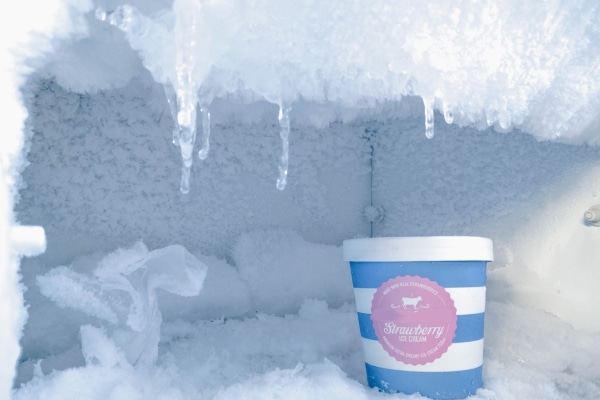
How long does food really last in the freezer? I’m sure you’ve wondered about this from time to time when you open the door and inspect some freezer-burnt packaging. Many people are very good at keeping track of their food. However, others toss things in their freezer (with good intentions) but then forget about what they’ve saved.
You may be surprised to learn that food doesn’t last as long as you think. It doesn’t necessarily mean the food expires but loses its quality, so if it’s time to tackle the contents of that freezer, good for you! Here’s some guidance from Health Canada.
Meat and Fish
Fresh whole meat pieces, like a roast or turkey, can be frozen for up to a year. However, only store ground meat for 2-3 months. Lean fish lasts up to six months, but fatty fish (like salmon) lasts only about two months. If it’s unidentifiable meat, throw it out!
Dairy
You can store hard cheese for up to a year, but processed cheese only lasts about three months. If unopened, unsalted butter’s lifespan is three months, but you can freeze salted butter for a year because salt is a preservative. Ice cream? Unopened, 2-3 months; if opened, just 1-2 months.
Fruits and Vegetables
Frozen fruit and vegetables like carrots and spinach pass the quality test for a year. Here are some tips for organizing your freezer:
- Label your packaging so you can easily identify it
- Use bins or plastic holders to house similar items
- Save space by emptying boxes and grouping the contents in containers (e.g., freezies, popsicles). Remember to keep the cooking/baking instructions, though!
- If you have a big freezer, keep an inventory of what’s inside so you don’t need to open it up each time.
- Don’t use your freezer for random storage. If you freeze bananas for a banana loaf but hate to bake, why keep them? Pass them on to someone who will use them or compost them.
Also, keep your freezer at -18º Celsius (0º Fahrenheit) to prevent spoilage and keep food out of the “temperature danger zone” (where bacteria can grow and cause food-related illness). Very important!
Need assistance in organizing your home life? Be sure to contact Out of Chaos. We’d love to hear from you.
Image by Dev Benjamin on Unsplash
